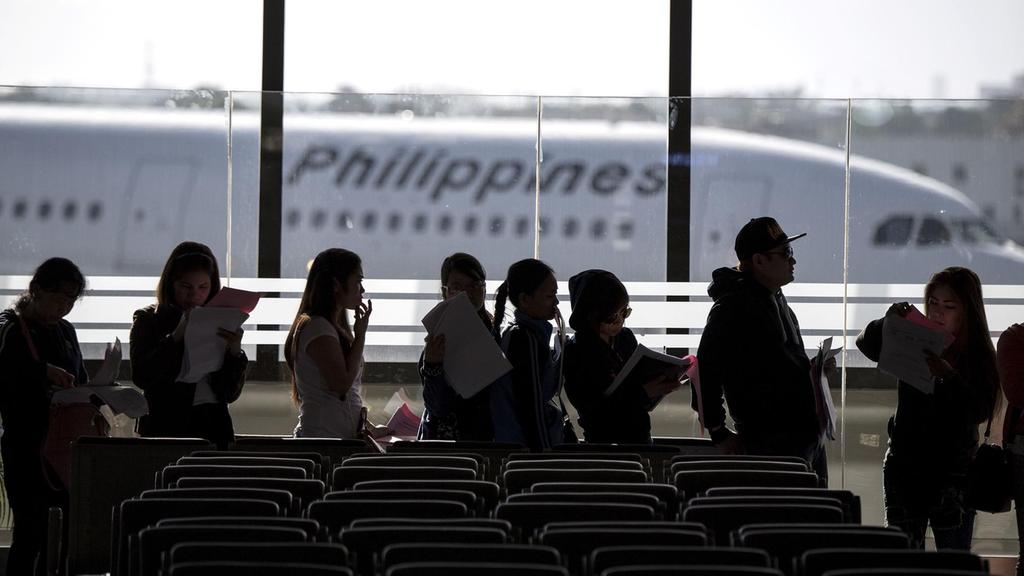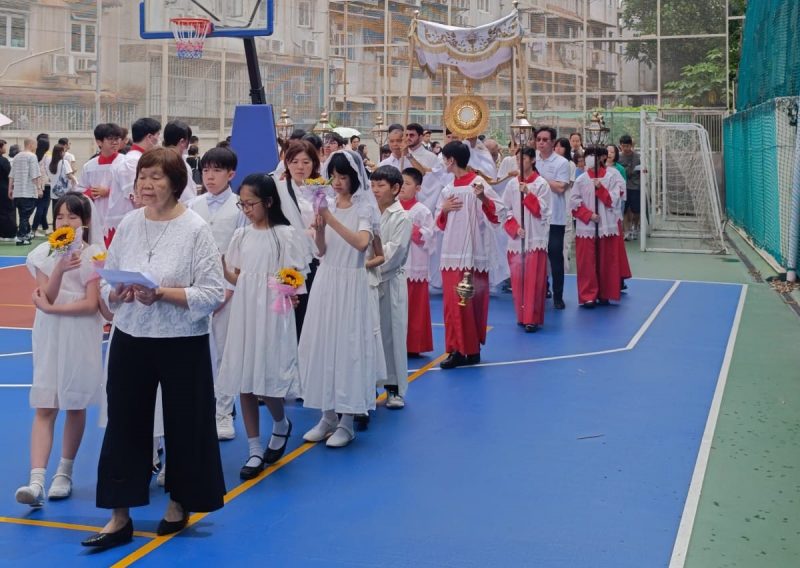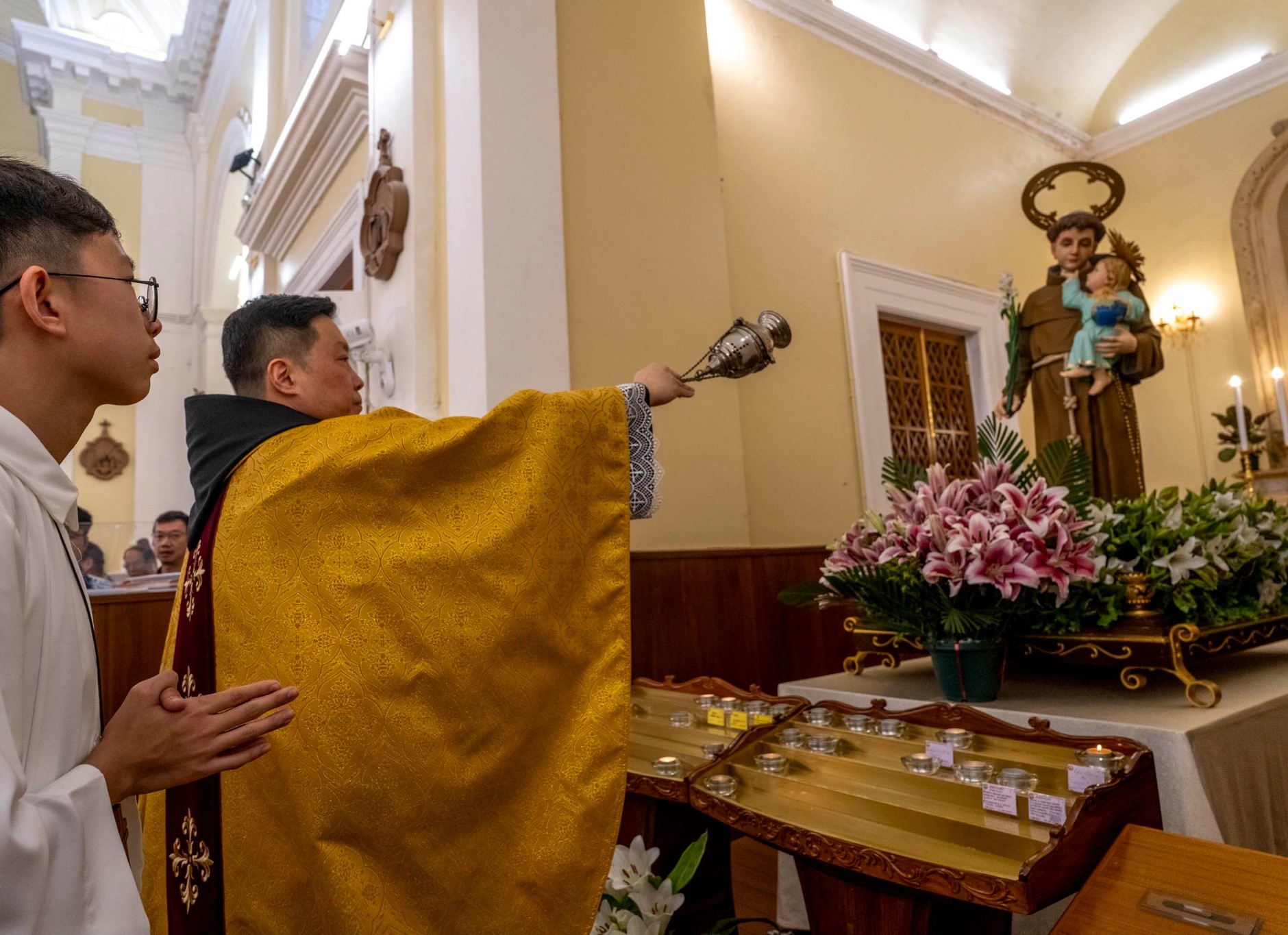Fr Leonard E Dollentas
For several years, foreign workers have provided a valuable workforce in various establishments and households in Macau. Recently, the economic fallout from the coronavirus pandemic has taken a toll largely on their employment and their lives.
In the midst of this situation, most of the foreign workers are grateful to the Catholic Church and Caritas Macau for providing them support. In particular, a number of displaced Filipino foreign workers receive organized help mostly from Caritas Macau, some parishes and charitable organizations and from the Filipino Pastoral Center under the auspices of the SOLT Fathers. The Philippine Consulate and the Philippine Labor Attaché office in Macau are also doing their best to offer valuable help for those who need to be repatriated back to the Philippines.
Myrna Mendoza (not her real name), a 40-year-old Filipina worked at a game establishment in Macau until she was laid off late last year. Amid the pandemic period, Mendoza was furloughed before eventually being laid off in November 2021 together with some other employees, mostly also Philippine nationals.
Mendoza, who came to Macau in 2003, said she fully understands the situation and was sad to leave her work because she and the other employees were treated well by their employer. Teary eyed, their employer told them that business was bad and that there was no prospect of recovery for the time being, Mendoza recounted. Mendoza is preparing to go back to the Philippines and still thinking how to support the children she left behind in their village in Mindanao (the southernmost major island in the Philippines). She regularly goes to Fatima parish for her food supply.
“As I barely make ends meet, I just wish I could work,” said Mendoza. But her chances of finding a new job have been hampered by the fact that almost all establishments in Macao are suffering from financial constraints and have to reduce their workforce to survive or cease operations.
The sad experience of Mendoza is one among the numerous cases being experienced by displaced foreign workers globally during the pandemic. In solidarity with them, the Catholic Church seeks to look after their needs in their depressing situation. In some parts of the world today, other Christian Churches and denominations are also extending services to help the displaced foreign and local workers.
This was affirmed by Reverend Jim Pradiz, an evangelical pastor in Macau: “True, the economic impact of the pandemic has cost many to lose their jobs, and travel restrictions have made it hard to go back home.” Reverend Pradiz has organized his small congregation to also reach out to the displaced workers. “It has always been a Christian commitment to welcome strangers who knock at the door seeking help,” the evangelical pastor added.
The Catholic Church teaches that the most vulnerable people are not simply those who are in a needy situation to whom we kindly offer an act of solidarity but are members of our family with whom we have a duty to share the resources we have. Solidarity towards migrants and refugees is inscribed in the common membership to the human family. (Pastoral Guidelines, Pontifical Council for the Pastoral Care of Migrants and Itinerant People and Pontifical Council Cor Unum, Vatican City, 2013, N 10.)
St Pope John Paul II, in his address to the participants in the assembly of the Council of the International Catholic Migration Commission on November 2001, invites all to an ever-deeper awareness of the mission of the Catholic Church: “to see Christ in every brother and sister in need, to proclaim and defend the dignity of every migrant, every displaced person and every refugee. In this way, assistance given will not be considered an alms from the goodness of our heart, but an act of justice due to them.”


 Follow
Follow


